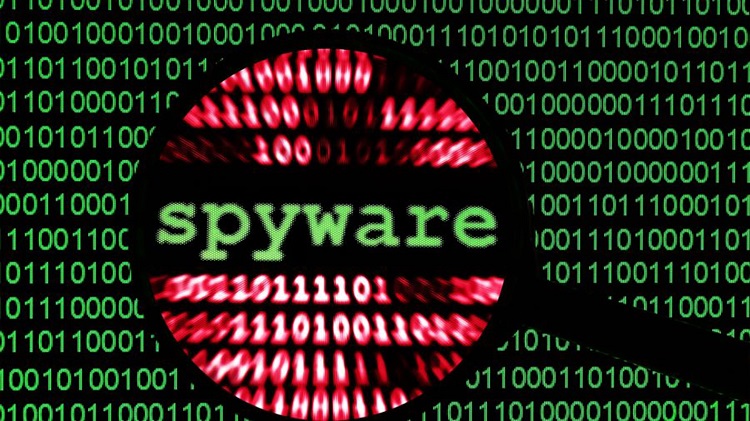Spyware is a breach of cyber security as they usually get into the laptop/ computer system when a user unintentionally clicks on a random unknown link or opens an unknown attachment, which downloads the spyware alongside the attachment. It is a best practice to be cautious of the sites that are used for downloading content on the system. Spyware is a type of software that unethically without proper permissions or authorization steals a user’s personal or business information and sends it to a third party. Spyware may get into a computer or laptop as a hidden component through free or shared wares.
Spywares perform the function of maliciously tracking a user’s activity, having access to data, or even resulting in the crashing of the computer/ laptop system. Spyware in many cases runs as a background process and slows down the normal functioning of the computer system.
Spyware enters the laptop/computer system through the below-listed ways:
◉ Phishing: It is a form of a security breach where spyware enters the system when a suspicious link is clicked or an unknown dangerous attachment is downloaded.
◉ Spoofing: It goes alongside phishing and makes the unauthorized emails appear to come from legitimate users or business units.
◉ Free Softwares or Shared Softwares: It gets into the system when a user installs software that is free of cost but has additional spyware added to them.
◉ Misleading software: This is advertised as very beneficial for the system and would boost up the speed of the system but lead to stealing confidential information from the system.
How does Spyware Enter the Computer System?
Spyware entering the system is very dangerous and therefore proper knowledge of them can save a lot of trusted information from being accessible to third-party. Spywares are classified on the basis of the function they perform. There are different types of Spyware, which can attack our system. These are listed as below:
◉ Adware: It is a type of Spyware that keeps track of the user’s activity and gives advertisements based on the tracked activity of the user.
◉ Tracking Cookies: It is a type of Spyware that tracks a user’s activity and supplies the same to third parties.
◉ Trojans: It is a type of Spyware that is the most dangerous. It aims to steal confidential user information such as bank details, passwords and transfers it to a third party to perform illegal transactions or frauds.
◉ Keyloggers: It is a type of Spyware that keeps a track of all the keystrokes that the user enters through the keyboard. It is dangerous as it contributes bro cyber fraud where sensitive passwords can be stolen by keeping an eye on the user who entered the information.
◉ Stalkerware: It is a type of Spyware that is installed on mobile phones to stalk the user. It tracks the movement of the user and sends the same to the third party.
◉ System Monitor: It is a type of Spyware that monitors and keep a track of the entire system including users activity, sensitive information, keystrokes, calls, and chats. It is extremely dangerous to user privacy.
How Spyware Infects Devices?
Spyware gets attached to websites and downloads without going much into the notice of the user. There are many software’s that get downloaded without any warning alongside the needed software and are very dangerous for our computer system. Another way of spyware, entering our systems is when the user clicks unverified links or downloads malicious contents on the computer system.
When spyware enters the computer system it unethically accesses the information that it is not authorized to view. In most cases, it also supplies this information to third-party users leading to data leaks. Sensitive information such as passwords and bank information are at much risk if spyware enters the computer system. Data leak, stealing of sensitive information, tracking user’s activity/ preferences, making the system slow down, and even crashing the computer system are the effects that can be caused when spyware enters the computer system without the user’s consent.
How to Prevent Spyware?
◉ Installing Antivirus/ Antispyware: The best way to protect your system from spyware is to install a good quality Anti-spyware or Antivirus such as MalwareBytes, Adaware, AVG Antivirus, SpywareBlaster, etc. This will help in protecting the computer system in case spyware tries to attach to our system. Installing Antivirus/ Antispyware also protects the system from harmful threats by blocking sites that try to steal data or leak the data to third-party users.
◉ Beware of Cookie Settings: There are some websites that transfer confidential information alongside cookies. It is always advisable to keep a check on the cookie settings and set the settings to high security.
◉ Beware of the Pop-ups on Websites: Don’t click on the pop-ups that appear on your website without reading them. Never accept their terms and conditions as it is highly dangerous. Always close the pop-up windows without clicking on ‘ok’.
◉ Never Install Free Software: Always be very cautious when you install free software on your systems. Free software mostly has spyware attached to them and it can directly leak confidential user information.
◉ Always read Terms & Conditions: Always read Terms and Conditions before installing apps on your system. Never accept policies that breach privacy. Download only trusted and verified apps from Google PlayStore or Apple PlayStore for mobile phones to protect them from Spyware.
Source: geeksforgeeks.org






0 comments:
Post a Comment